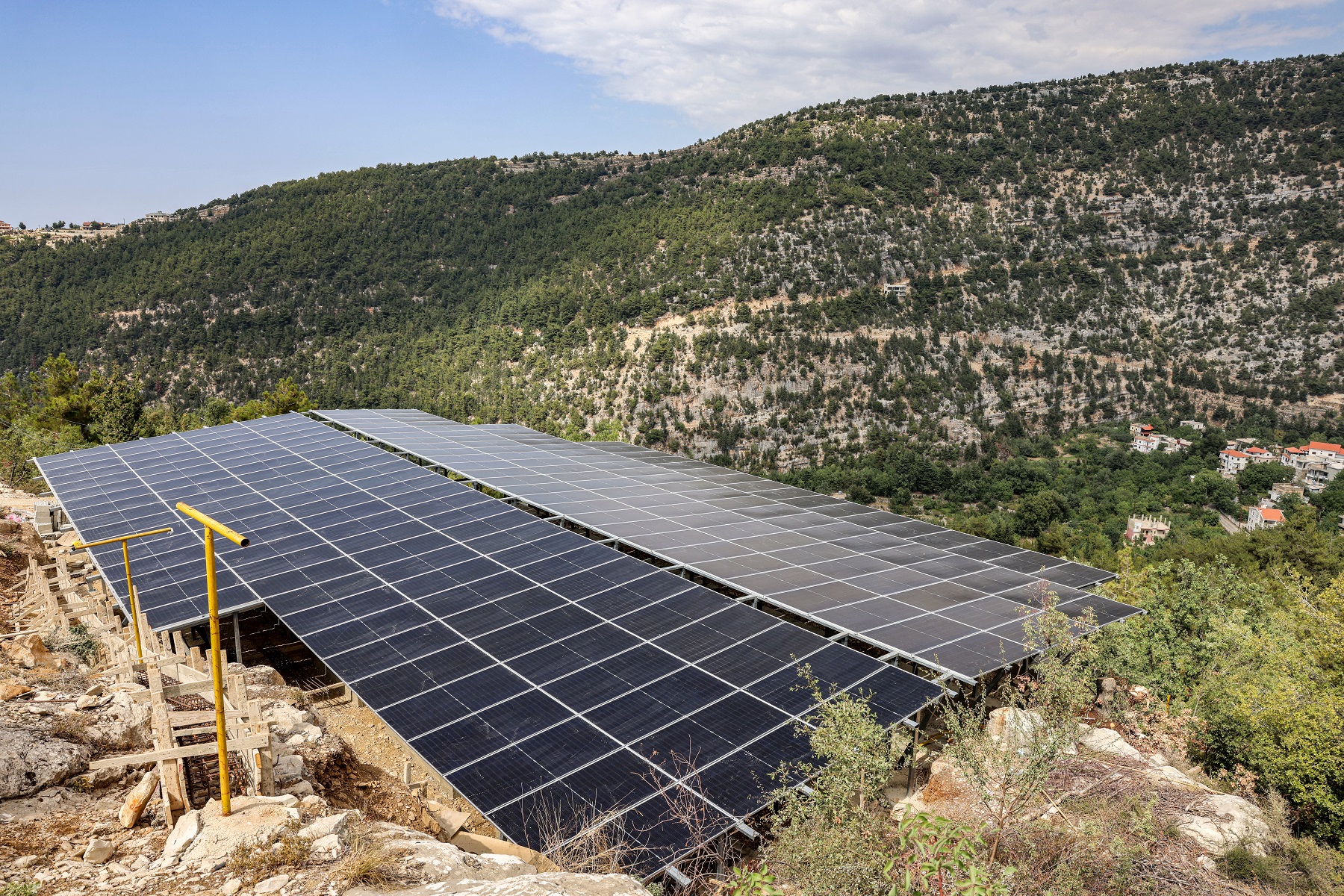Lebanon’s Renewable Energy Ventures Gain Traction

In recent years, Lebanon has faced a myriad of challenges, including political instability, economic turmoil, and a crumbling infrastructure. As the country grapples with a persistent energy crisis, renewable energy has emerged as a beacon of hope, offering sustainable alternatives to fossil fuels. The Lebanese government and private sector are now focusing on solar energy and hydropower initiatives to address the ongoing energy shortfalls and promote energy independence.
The Current Energy Landscape in Lebanon
Lebanon’s energy sector has been under strain for decades, with power cuts often lasting up to 20 hours a day. This crisis has been exacerbated by years of mismanagement, corruption, and a reliance on imported fossil fuels. The country’s energy needs are primarily met through electricity produced by thermal power plants, which are heavily dependent on imported fuel, leaving the nation vulnerable to price fluctuations and supply disruptions.
In light of these challenges, the Lebanese government has recognised the urgent need to diversify its energy sources and has initiated several renewable energy projects aimed at enhancing the country’s energy security.
Solar Energy Initiatives
Solar energy has taken centre stage in Lebanon’s renewable energy strategy. The country enjoys abundant sunlight throughout the year, making it an ideal candidate for solar energy projects. The Lebanese government set a target to generate 15% of its electricity from renewable sources by 2030, with solar power expected to play a significant role in achieving this goal.
- Private Sector Investments
Several private companies have begun investing heavily in solar energy projects. For instance, the Lebanese company “PowerGen” has launched multiple solar farms across the country, contributing to local energy production and reducing dependence on fossil fuels. These initiatives not only address the immediate energy crisis but also create jobs and stimulate local economies. - International Partnerships
International organisations have also recognised Lebanon’s potential for solar energy. Partnerships with European countries have resulted in funding for solar projects, including the installation of solar panels on public buildings and schools. This not only helps to provide electricity to these facilities but also sets an example for the community about the benefits of renewable energy.
Hydropower Developments
In addition to solar energy, Lebanon is also exploring its hydropower potential. The country’s mountainous terrain and numerous rivers offer significant opportunities for hydropower generation.
- Existing Hydropower Plants
Lebanon has a few existing hydropower plants that have been operational for decades. However, the potential for expanding this sector remains largely untapped. Current projects focus on rehabilitating these facilities to improve their efficiency and output. - New Projects on the Horizon
New hydropower projects are being planned, particularly in regions where river flows can be harnessed effectively. The Lebanese government, alongside international partners, is looking to invest in these initiatives as a means of diversifying the energy portfolio and reducing greenhouse gas emissions.
Green Hydrogen: The Future of Energy?
As Lebanon continues to develop its renewable energy infrastructure, there is growing interest in exploring green hydrogen as a potential energy source. Green hydrogen is produced through the electrolysis of water using renewable energy sources, offering a clean alternative to fossil fuels.
- Training and Development Programs
Recent initiatives, such as the Green Hydrogen Lebanon Camp, aim to educate stakeholders on Power-to-X technologies and explore the potential for green hydrogen production in the country. - Long-term Potential
If successfully implemented, green hydrogen could play a significant role in Lebanon’s energy transition, providing a versatile fuel source for various applications, from transportation to industrial processes.
Challenges Ahead
Despite the promising developments in renewable energy, Lebanon faces several challenges that could impede progress:
- Political Instability
The ongoing political crisis in Lebanon can hinder investment in renewable energy projects. Uncertainty regarding government policies and regulations can deter both local and foreign investors. - Infrastructure Limitations
The existing energy infrastructure requires significant upgrades to integrate renewable energy sources effectively. Without substantial investment in grid improvements and storage solutions, the full potential of renewable energy may not be realised. - Public Awareness and Acceptance
There is a need for greater public awareness about the benefits of renewable energy. Educational campaigns and community engagement are crucial to encourage the adoption of solar and hydropower solutions.
Conclusion
Lebanon’s shift towards renewable energy represents a crucial step towards addressing its chronic energy crisis. The combination of solar and hydropower projects, alongside emerging interests in green hydrogen, provides a comprehensive approach to diversifying the energy mix. As the country seeks to regain energy independence and promote sustainable development, continued investment, government support, and public engagement will be essential for the success of these initiatives.
In this challenging yet transformative period, Lebanon’s renewable energy ventures are not only vital for meeting current energy demands but also for securing a sustainable and prosperous future.


